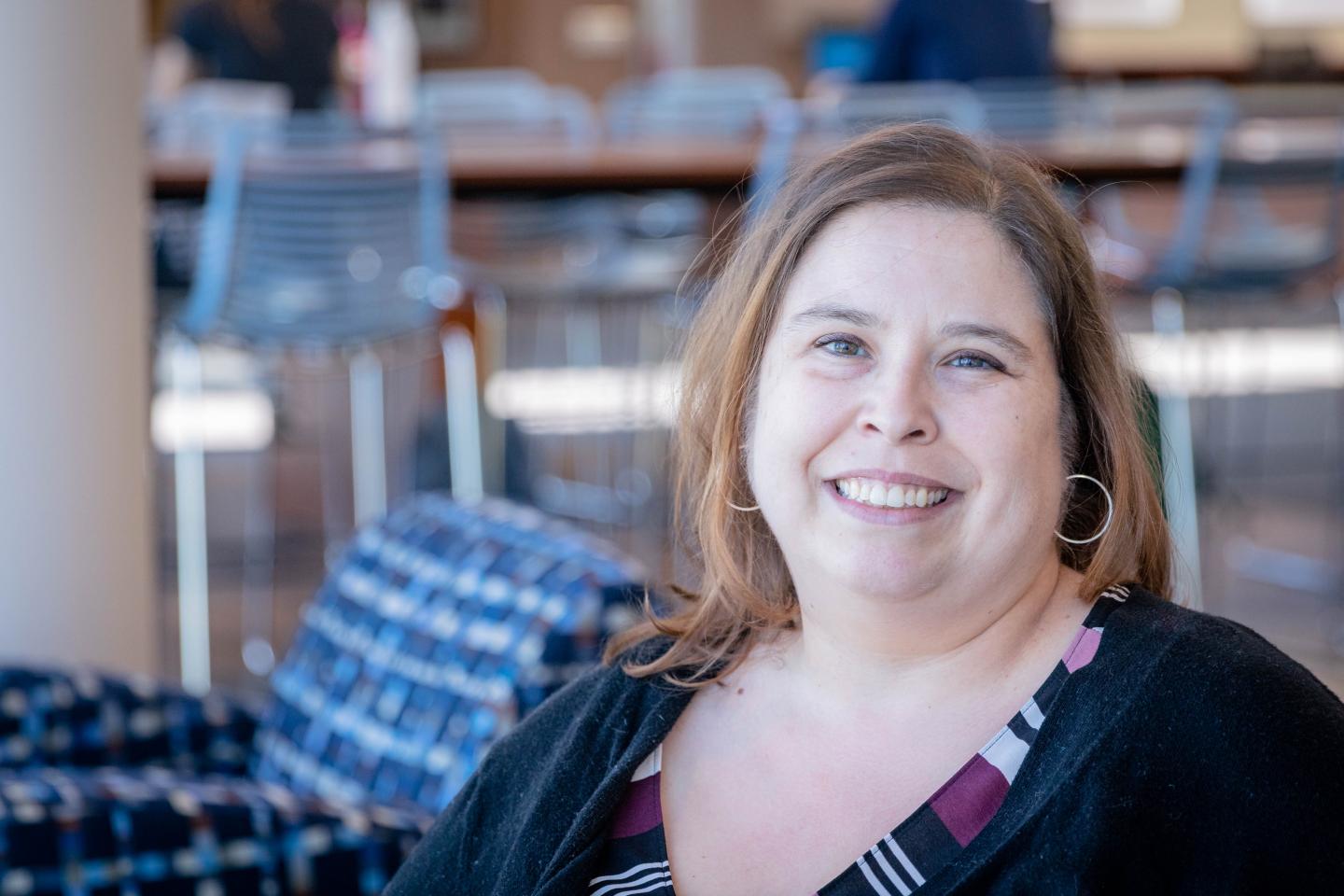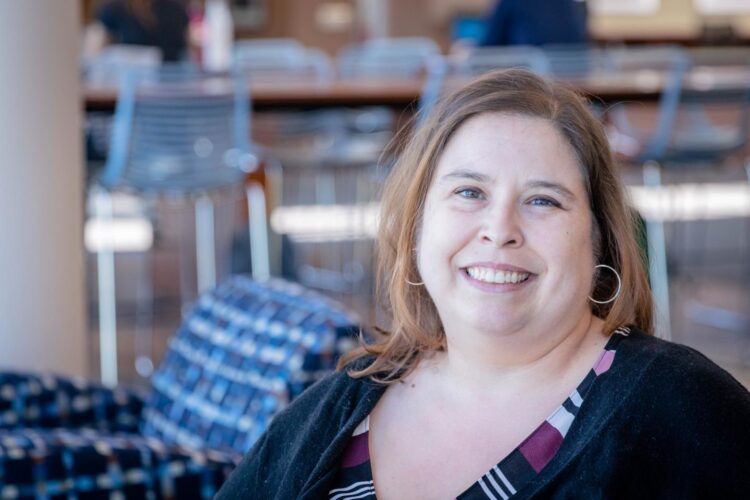
Credit: West Virginia University
About 22 percent of women between the ages of 15 and 44 report having used emergency contraception. But even though the Food and Drug Administration approved levonorgestrel–more commonly known as Plan B–for over-the-counter use for women of all ages in 2013, it’s not always easy to get–especially at local, mom-and-pop drug stores.
According to a new study led by West Virginia University researcher Amie Ashcraft, chain pharmacies in West Virginia–like CVS and Walmart–are much more likely to stock emergency contraception than smaller independent pharmacies. It was available at 76.3 percent of the chain pharmacies her research team queried, whereas only 14.6 percent of independent pharmacies had it on hand.
“We knew there would be a disparity but not to that degree,” said Ashcraft, a research assistant professor and director of research in the School of Medicine’s Department of Family Medicine. “We were shocked.”
To assess the availability of emergency contraception at pharmacies across the state, Ashcraft and her colleagues trained women in undergraduate- and graduate-level courses at WVU to call pharmacies and–using a planned script–ask if emergency contraception was currently available.
In one call, each woman introduced herself as a researcher and explained that she was gathering information for a study. In a second “mystery shopper” call, she pretended to be a 16-year-old seeking Plan B for herself.
“Some of the pharmacies–especially the ones in the really small towns–physically aren’t very big,” she said. “They might choose to use their shelf space for medications for diabetes and COPD and choose not to carry Plan B. But reproduction should be a basic part of health that they address.”
Availability isn’t the only issue, however. Just because a pharmacy stocks Plan B doesn’t mean customers can get it conveniently.
For instance, a pharmacy might keep it under lock and key, requiring customers to ask that the shelf be unlocked. Or a pharmacy employee might say–erroneously–that the customer needs to have a prescription or show an ID to get it.
To gauge how accessible pharmacies made emergency contraception, callers also asked about its location in the store and any restrictions to buying it.
The researchers deemed Plan B “completely accessible” if a pharmacy had it in stock at the time of the call, enforced no age restrictions, did not require an ID or parental approval and made it available without help from the pharmacy staff.
Less than half of chain pharmacies–46.5 percent–made Plan B completely accessible. Far fewer independent pharmacies did: just 2.7 percent.
Ashcraft attributes this disparity–at least in part–to corporate policy.
“Chain pharmacies have their policy set at the corporate level, whereas independent pharmacies have more variability in their policies and procedures and may be less current in their knowledge of emergency contraception restrictions, or place a lower priority on such information,” she said.
“It was alarming how many times we heard answers like, ‘We don’t know. The laws just keep changing, and we can’t keep up with them,'” she said. “But it’s been available over the counter in all 50 states since 2013. If pharmacy staff doesn’t know, how is your average 16-year-old supposed to?”
And sometimes a pharmacy didn’t give any information at all.
“During the first couple of weeks of the study, one of our research assistants called me and said, ‘I’m so sorry. I don’t think I’m doing a good job. I think I’m messing up,'” Ashcraft said. “I asked, ‘What do you mean?’ And she said, ‘Well, they keep hanging up on me as soon as I ask for emergency contraception.’ And I was like, ‘No, no, no, no. This is exactly what we want to know.’ Imagine being a scared teen who genuinely needed emergency contraception and was intimidated by the process of getting it. How would you feel if the pharmacy staff hung up on you? It could shut you down.”
Not only were chain pharmacies more likely to make emergency contraception completely accessible, but overall, they were also more knowledgeable about its effectiveness.
For instance, when employees at chain pharmacies were asked how long Plan B could be taken after unprotected sex and still work, only 14 percent of the employees said they didn’t know. But at independent pharmacies, that number rose to 40 percent. (The correct answer: it’s most effective within 72 hours.)
Ashcraft and her team are now examining the differences between how pharmacy employees responded to callers who identified themselves as researchers and those who said they were teenagers in need of emergency contraception.
They’re also turning from the quantitative data to the qualitative. They’ve begun to parse the words pharmacy employees chose, evaluate their content and look for themes.
“Plenty of them would say, ‘Oh, we don’t do that here,’ or, ‘We don’t mess with that stuff,'” Ashcraft said. “Or we would have staff say, ‘We have condoms. You might want to think about that next time’ in a judgmental tone.”
Emergency contraception is the only form of contraception that works after the risk of exposure. For that reason, it’s an important tool for preventing unintended pregnancy following unprotected sex, sexual assault or suspected contraceptive failure.
“Easily accessible emergency contraception could help to reduce teen and unintended pregnancy in West Virginia,” Ashcraft said. “The state has some of the highest rates of teen pregnancy and poverty in the country. Emergency contraception may be an important component in helping to break the state’s generational cycle of poverty, unintended pregnancy and poor educational, social and health outcomes.”
###
Citation
Title: Harder to get than you think: Levonorgestrel emergency contraception access in West Virginia community pharmacies
DOI: https:/
Link: https://www.japha.org/article/S1544-3191(20)30352-6/fulltext
Media Contact
Tara Scatterday, WVU Health Sciences
[email protected]
Original Source
https:/
Related Journal Article
http://dx.





